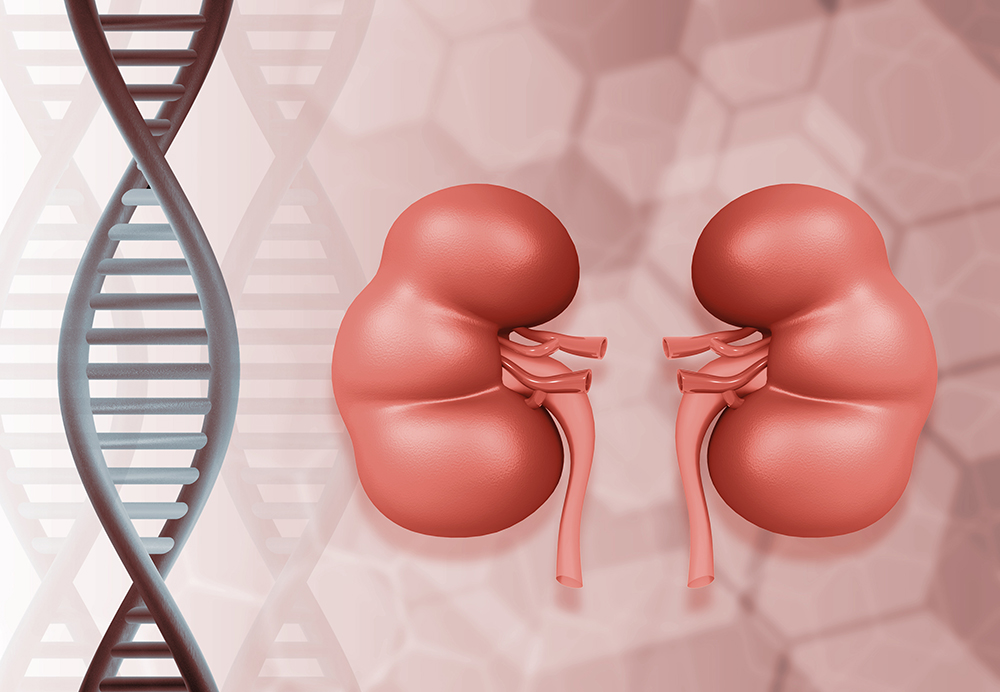
People with genetic forms of kidney disease have an increased risk of kidney failure, higher rates of kidney function decline, and lower chances of experiencing disease remission compared to people with non-genetic forms of kidney disease, according to a large-scale analysis. The results were published in the
Journal of Clinical Investigation.
Dr. Mark Elliott is a nephrologist with the University of British Columbia’s Division of Nephrology. He helped conduct the study while completing a fellowship at Columbia University in New York. There, he began specializing in genetic kidney disease, and says, “A lot of this research on genetic disorders stems from trying to give our patients the best understanding of what's happening with their kidneys and what their journey is going to look like going forward.”
To support this work, Elliott and his colleagues analyzed three large datasets capturing whole-genome sequencing data from a total of more than 5,700 people with kidney disease, living predominantly in the United States, but internationally as well. The researchers compared the outcomes of people who had genetic forms of kidney disease associated with a specific gene mutation – which made up 6.5 percent of study participants – to the other study participants with kidney disease, but no clear genetic causes.
“We consistently found that people with genetic forms of kidney disease had disease that progressed more rapidly, so their eGFR - which is a measure of kidney function - went down faster, their time to kidney failure was shorter, and they typically didn't respond to treatment as well as those patients without a genetic form of kidney disease,” Elliott says.
Their analysis showed that people with genetic forms of kidney disease were almost twice as likely as those without genetic kidney disease to develop kidney failure and need dialysis or a kidney transplant. Also, people with genetic forms of kidney disease were five times less likely to completely respond to treatment compared to those without genetic kidney diseases.
As well, there is one gene that is associated with an increased risk of kidney disease, but does not guarantee someone will develop kidney disease, called APOL1. Similar to findings in other studies, this gene was associated with an increased risk of kidney failure and faster eGFR decline.
Elliott points out there was an added benefit to patients who participated in this study, as they had the opportunity to review their genetic test results. Although the researchers were looking specifically at genes related to kidney disease, the results also helped reveal other health complications participants were genetically susceptible to. For example, if it was found that patients also had a gene associated with breast cancer, this information was shared with them.
Remarkably, of the approximately 5 percent of participants who had susceptibility to a non-kidney complication, 70 percent were expected to benefit from treatment related to that additional complication.
“This was a particularly helpful study because it could actually influence clinical care in a direct way for people with genetic kidney disease as well as those who potentially had additional genetic complications,” Elliott says.
Since completing this study during his fellowship in the U.S., Elliott has returned to Canada and plans to launch a similar research endeavour for British Columbians living with kidney disease. Recruitment for that BC-based study may start as soon as summer of 2025.
